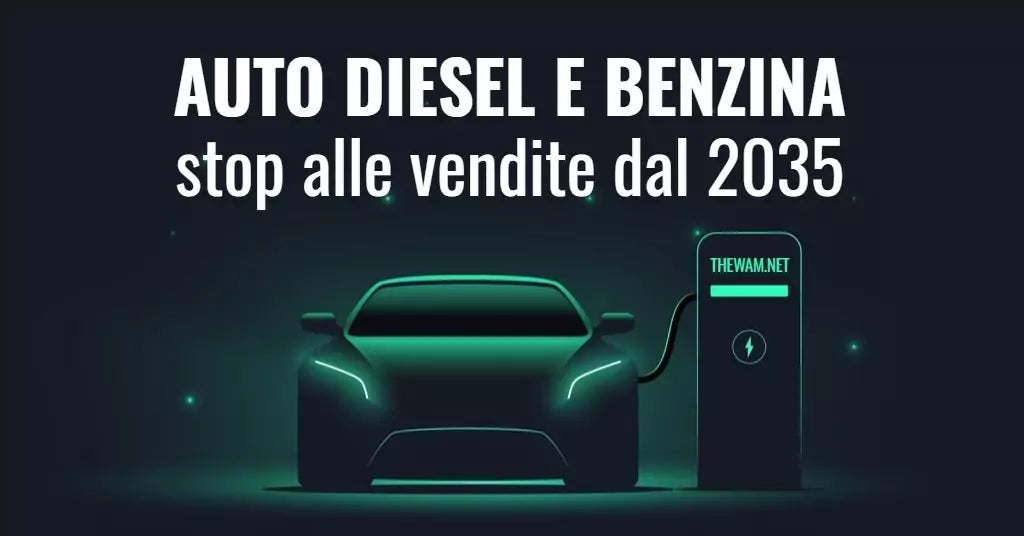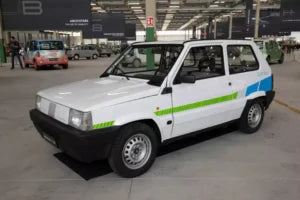The electric car will soon replace diesel and petrol cars, what are the steps to this success?
The electric car is starting to become even more normal, especially now that the European Parliament has expressed its opinion.
The day was June 8, 2022, a date that will remain in the history of internal combustion engines, given that it indicates their end for the first time.
On that date, the “Fit for 55” package was released, part of the ambitious European Green Deal programme.
The "Fit for 55" in fact provides for a stop to the sale starting from 31 December 2035 of all endothermic cars, i.e. based on a traditional combustion system powered by petrol and diesel.
During the discussion on this law many points emerged, with countries against and doubtful.
In particular, there were two observations, the first related to moving this date forward by at least another 5 years, the second to leave a window of opportunity for any non-polluting biofuels that could be created in these years.
At the moment the move has not been granted, but a possibility has been left for biofuels, for a dossier that will be discussed again, especially for this part by 2026.
At present, however, this rule is going to stop the sale of traditional cars in favor of the only two possible alternatives, hydrogen cars, but above all, electric cars.

What will happen in 2035?
Let's take a leap into the future and try to figure out what will happen 13 years from today, assuming there are no slippages regarding this ultimatum.
At the end of 2035 the last traditional cars will go off sale, which in the meantime will have reached at least Euro 7. Probably considering the industrial production logic of the car manufacturers, at least by 2034 the "traditional" cars will have left the assembly cycle, but they will continue those already produced to be sold.
The blockade of 31 December 2035 will not in fact relate to circulation, but only to sales, with the aim of gradually reducing the number of endothermic cars, both for consumption and for the progressive disappearance of fuels and spare parts.
What will the cars of 2035 be?
At present, given the already moderate diffusion, even in hybrid form it is assumed that the 2035/40 cars will be electric.
Cars like those of the Tesla brand, which already produces only cars of this type, or the proposals of almost all traditional car manufacturers, which have started to introduce electric and hybrid cars into their catalogue.
Electric car, a story from the past 
We always think of the electric car as a recent creation, but many will be amazed to discover that in reality the electric car has a long history, which dates back to before the petrol one.
In fact, the first prototype was actually a carriage and was born around 1830. A few years later the first electric car was presented, which was perfected throughout the second half of the century.
The electric car system is considered ideal as a means of transport, given that it does not have the typical problems of petrol and steam prototypes.
In particular, what we like are the silence and the lack of bad smells, two factors that still make the electric car more attractive compared to the petrol and diesel equivalent.
The development, focused above all on bacteria, therefore proceeded smoothly until the end of the 1800s.
1899 is a fundamental year for the electric car. At the same time, the 100 km/h barrier was broken. The protagonists of this great achievement are the Belgian driver Camille Jenatzy and his rocket-shaped electric vehicle, La Jamais Contente.
1900
The new century sees an advancement in combustion engine technologies with an "almost balance" between them and those of the electric car.
In fact, the two technologies coexist quite well in the first period, given that they cover two rather different needs.
The convenience and silence of the electric car is in fact chosen by those who travel especially on urban routes, with minimum distances and flat routes.
The internal combustion engine is preferred by those who take long journeys.
 The electric car in 1900
The electric car in 1900
The electric car is much loved by private individuals and public administrations, this type of motorization is in fact chosen by many cities for public transport, taxis and even for a pioneering car sharing system.
But this success won't last long…
The decline of the electric car
A few years are enough and the gap between the two systems begins to become evident. The low cost of petrol and the improvement in the performance of thermal engines lead to a great advantage over the electric solution.
The implementation of the electric starter motor on the petrol engine will also remove one of the last obstacles to this engine, which will begin to gain more and more support until it becomes predominant. In addition to this, silencers will also arrive which will at least partially solve the noise problem and radiators which will remove the overheating problem.
The petrol engine will then become a combustion engine and the assembly line concept will be implemented on this type of machine.
The combination of these improving and cost-lowering technologies will give a huge boost to petrol engines and will stop the development of electric ones for almost a century.
Pollution and fuel prices 
A change of mentality and greater attention to the environment will be necessary to rediscover electric motors. A renewed ecological awareness that is expanding thanks to the increases in petrol and diesel prices which no longer make this transport technology so convenient.
The 2000s and lithium batteries will mark the renewed interest in electric cars that return to appear for car sharing and in public administration.
Electric car today
Thanks also to the excellent marketing work of Tesla and Elon Musk, today the electric car is a status symbol to aspire to. Added to this is a network that is finally starting to be widespread throughout the area and the increase in solar panels on individual homes which make charging an electric car feasible even at home, at no cost.
The future, not only due to government imposition, currently belongs to the electric car. Possible competitors to this technology have yet to be developed industrially (hydrogen) or be created…








